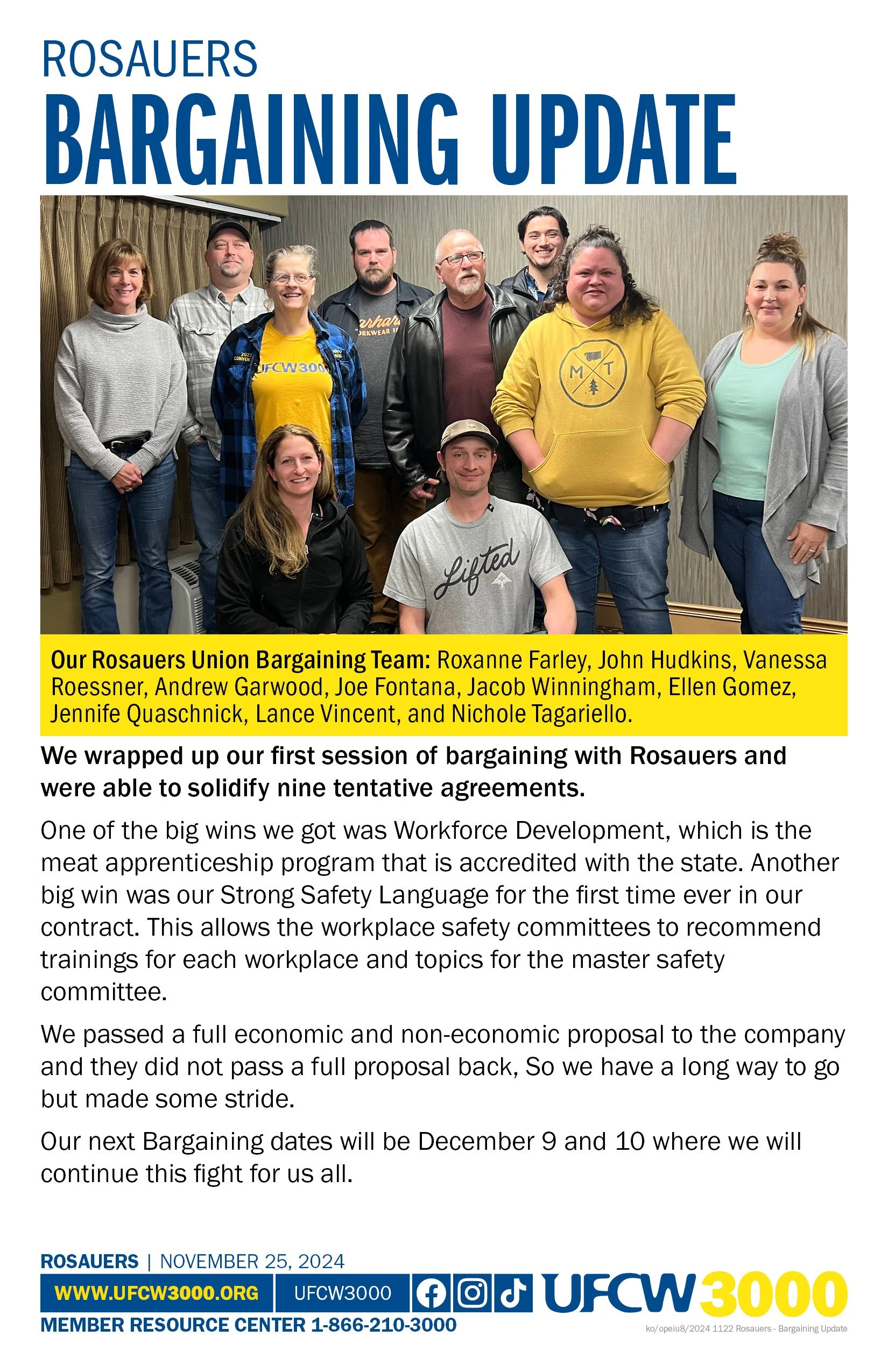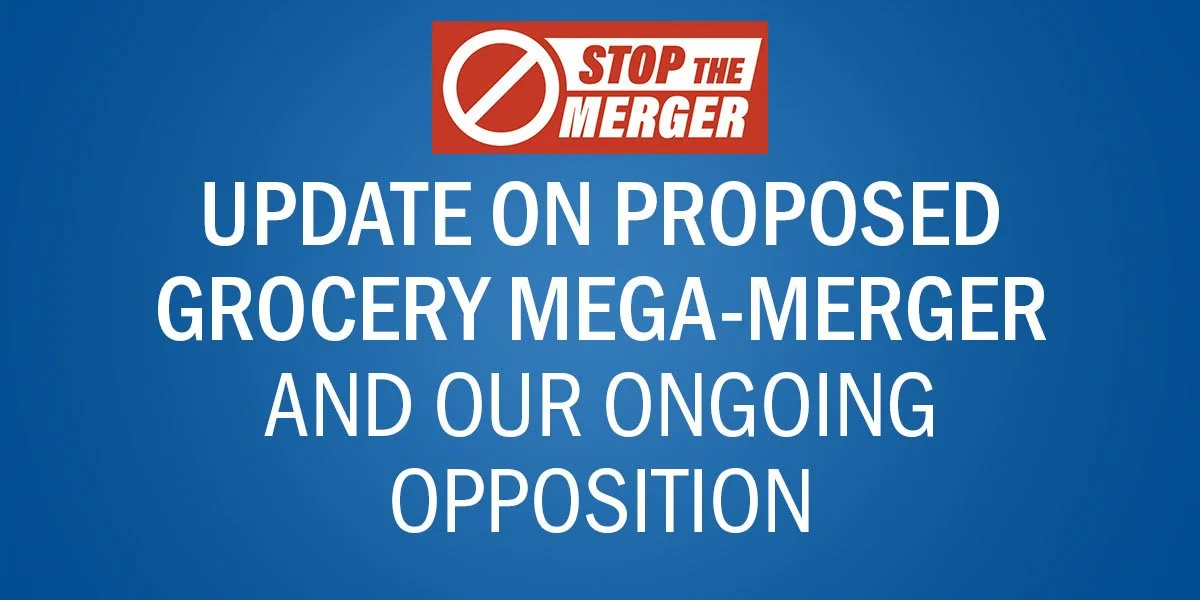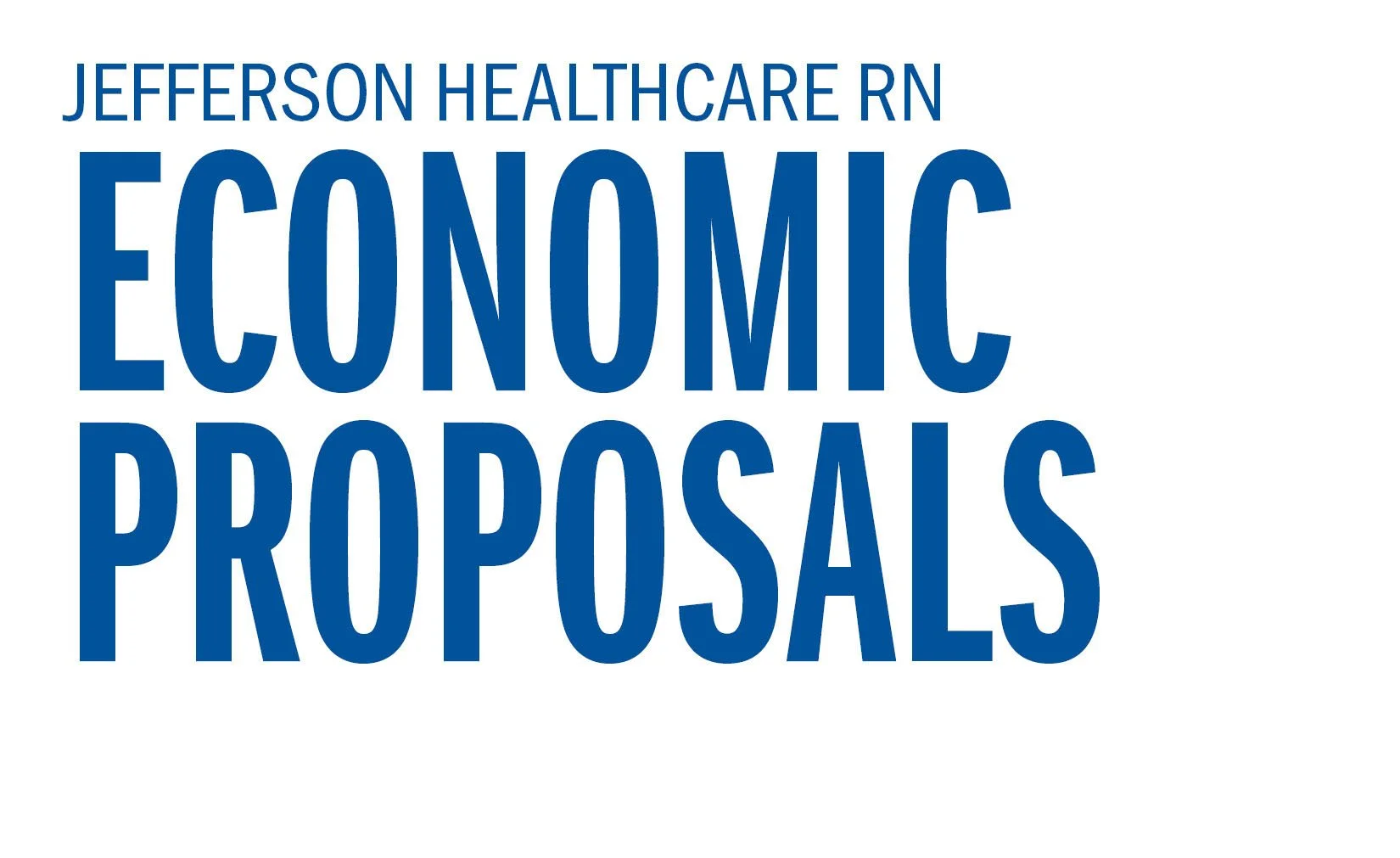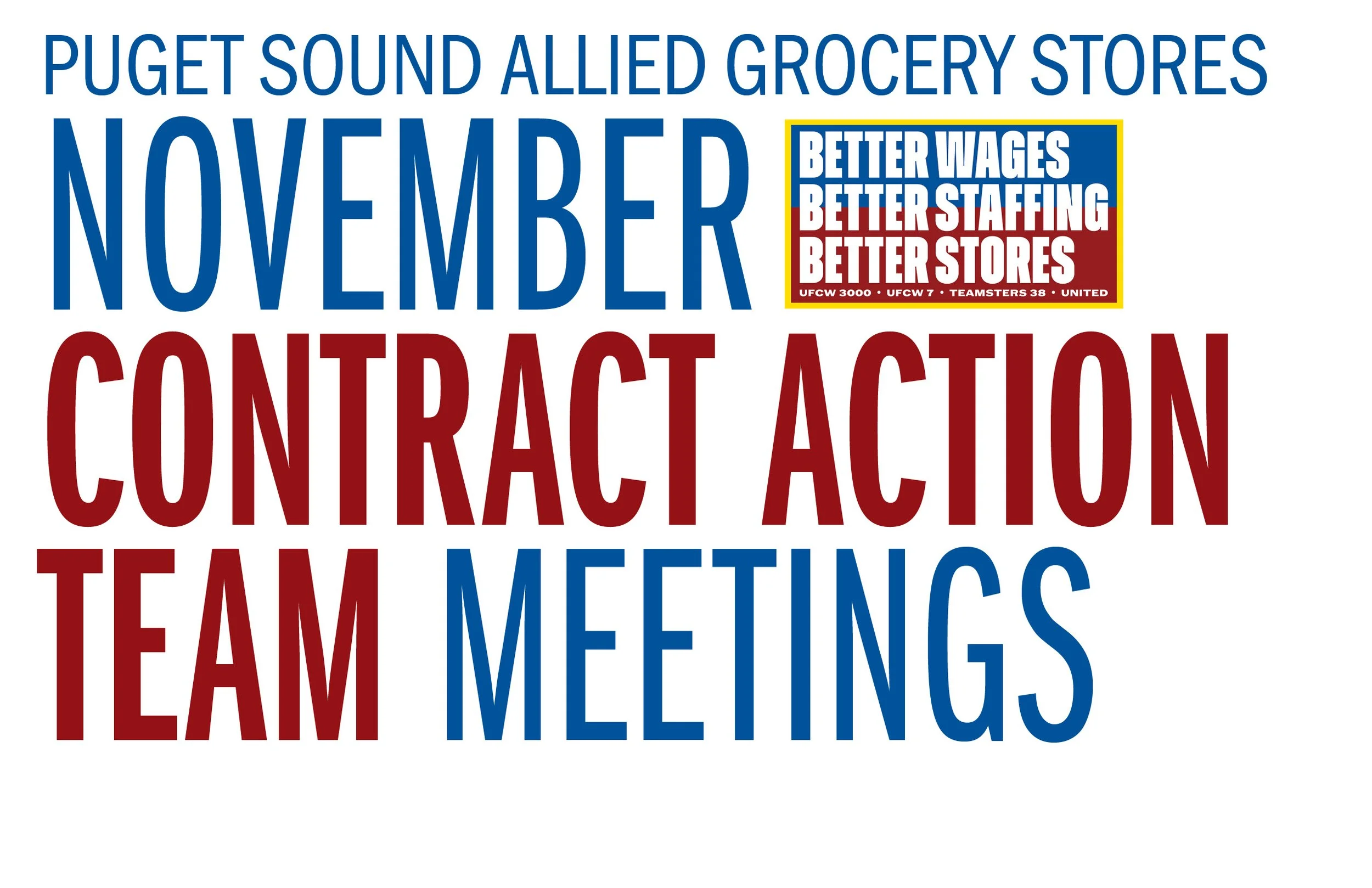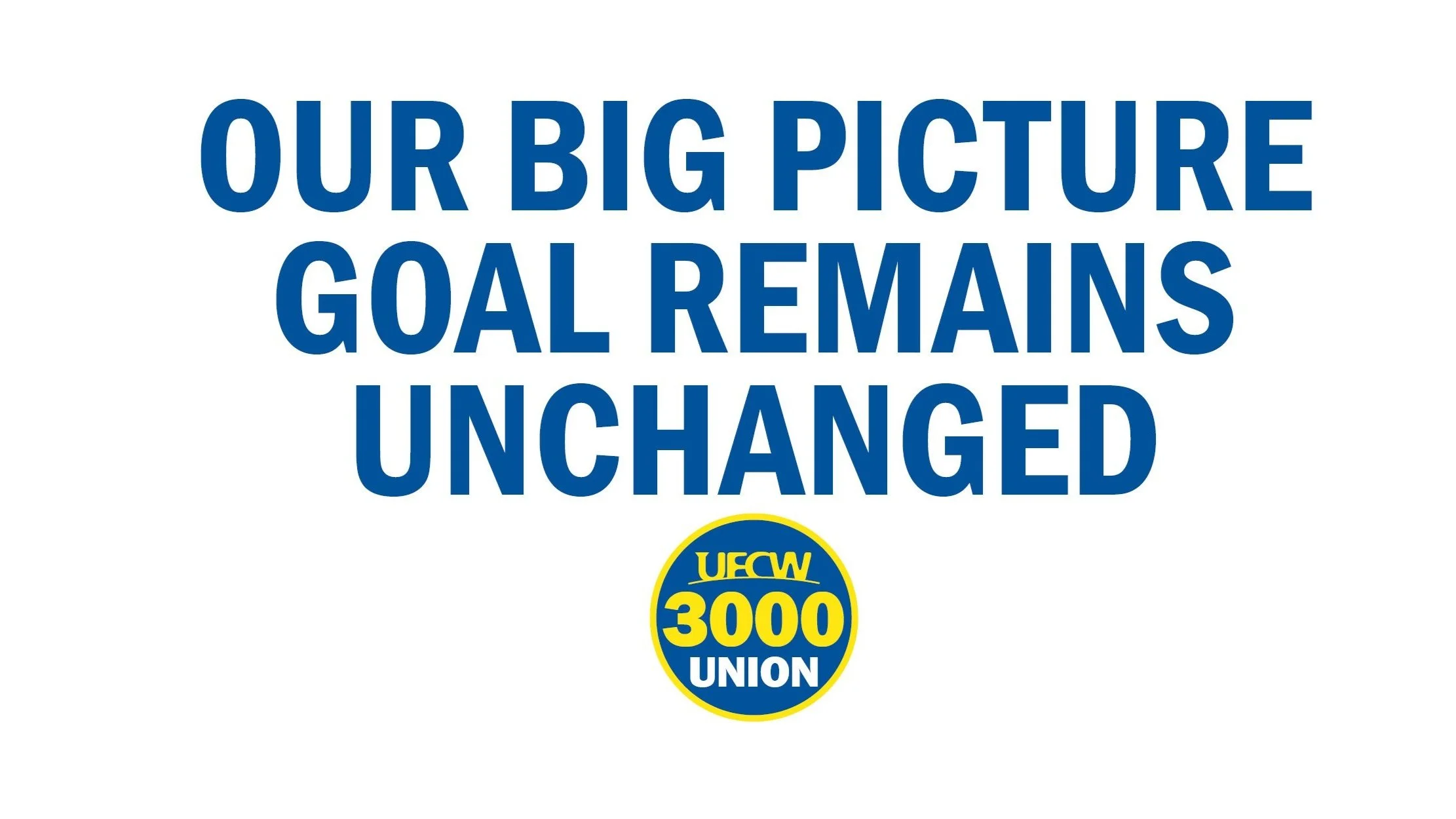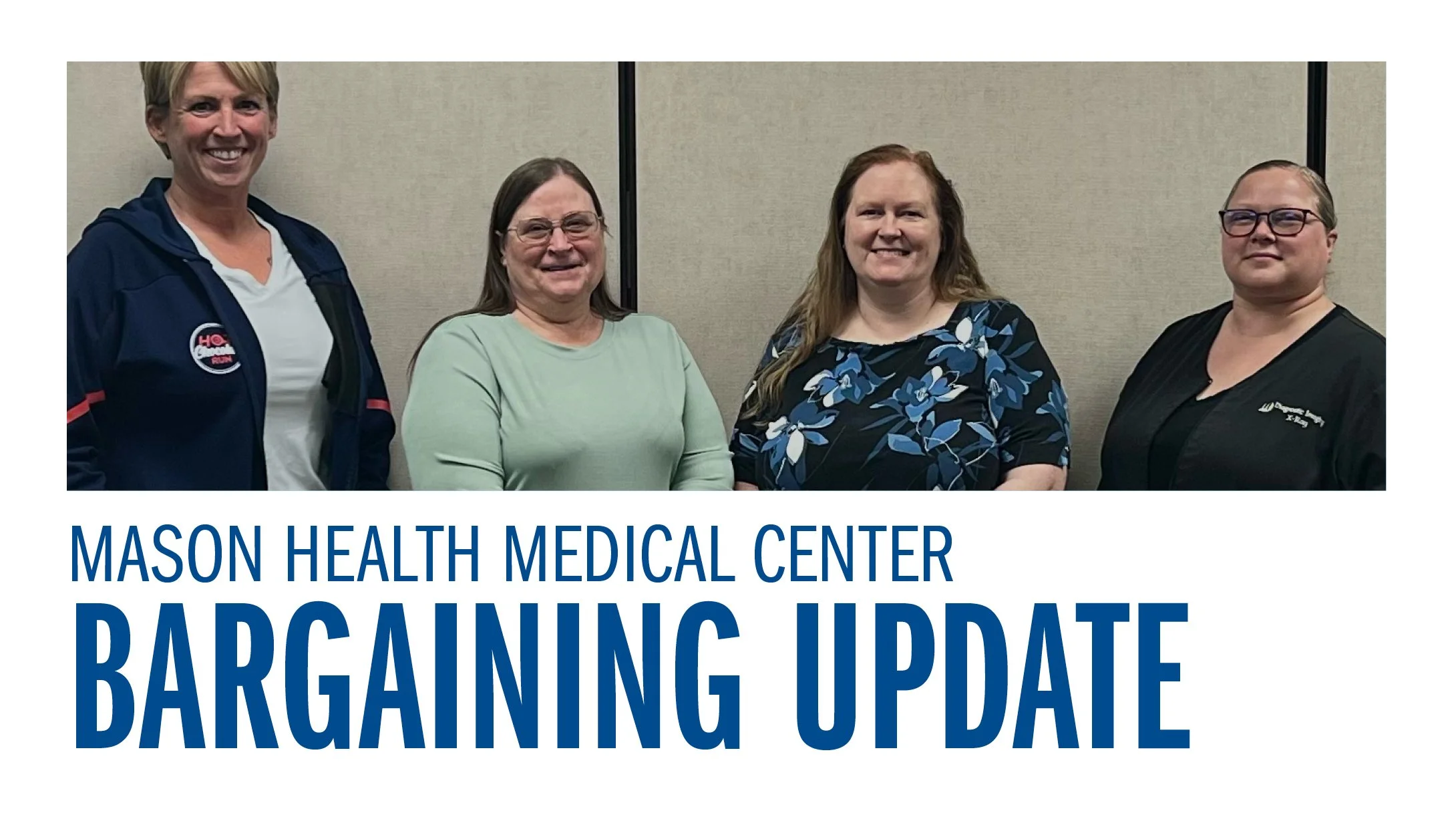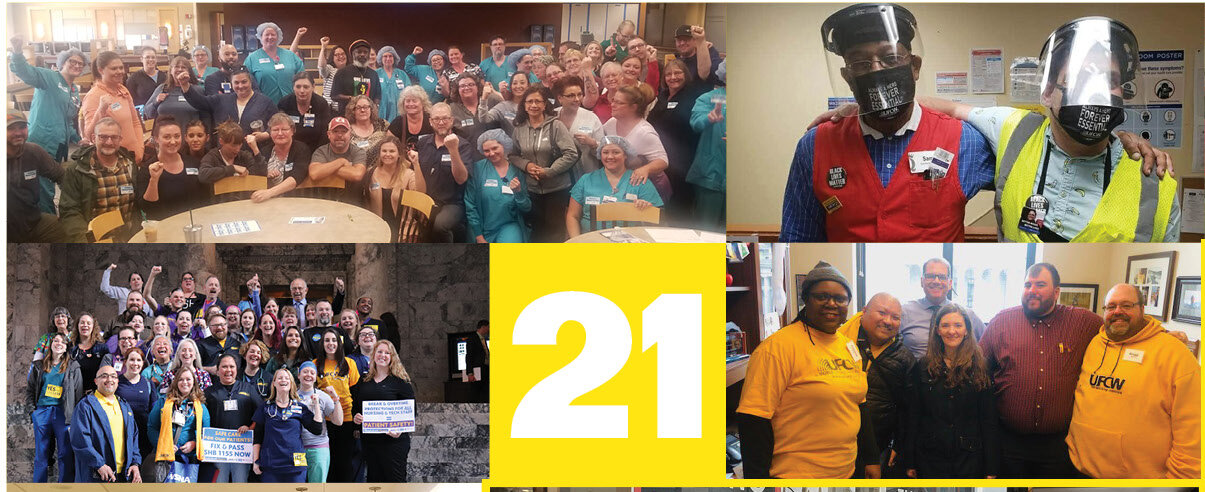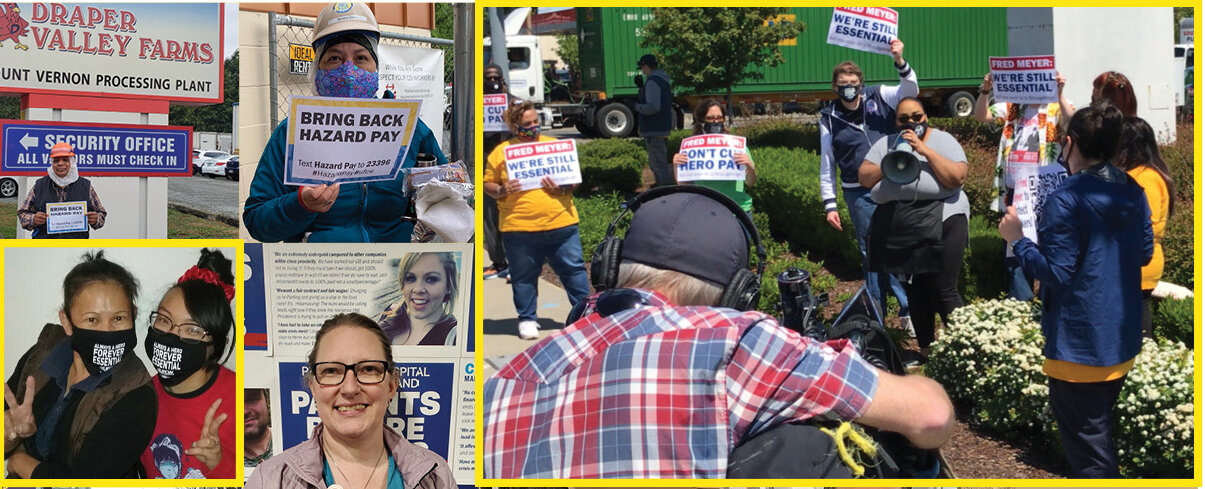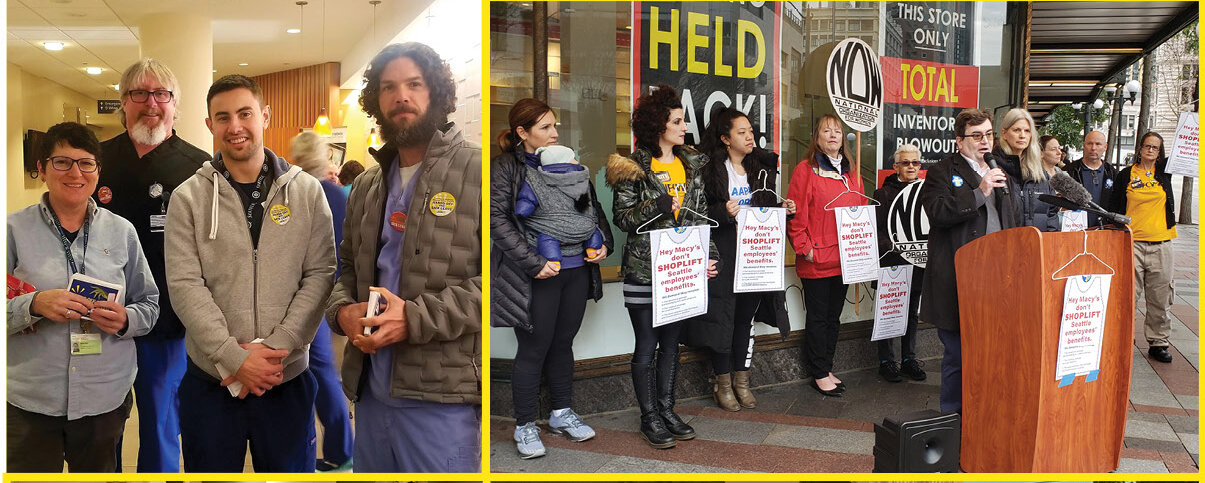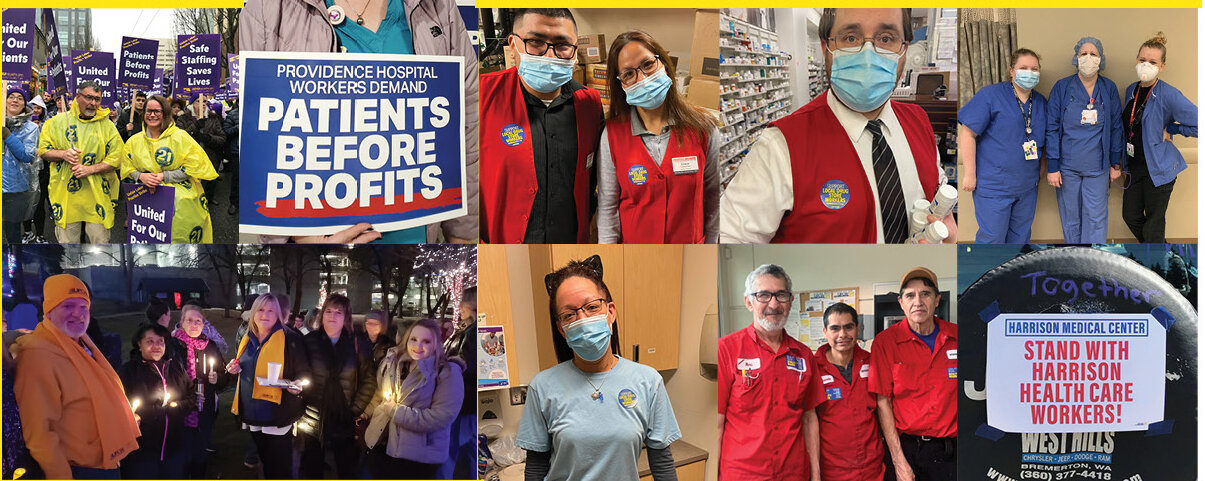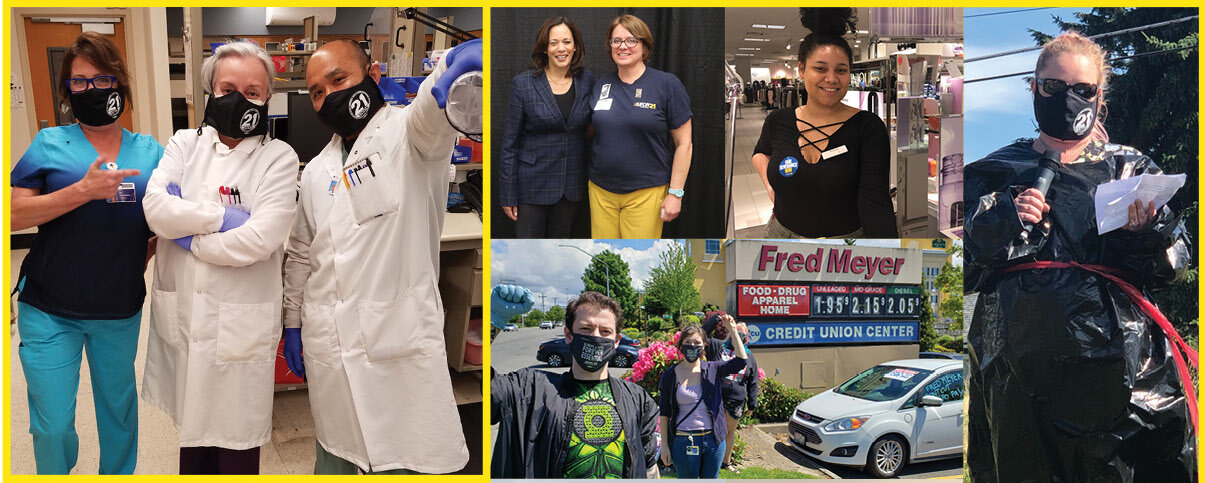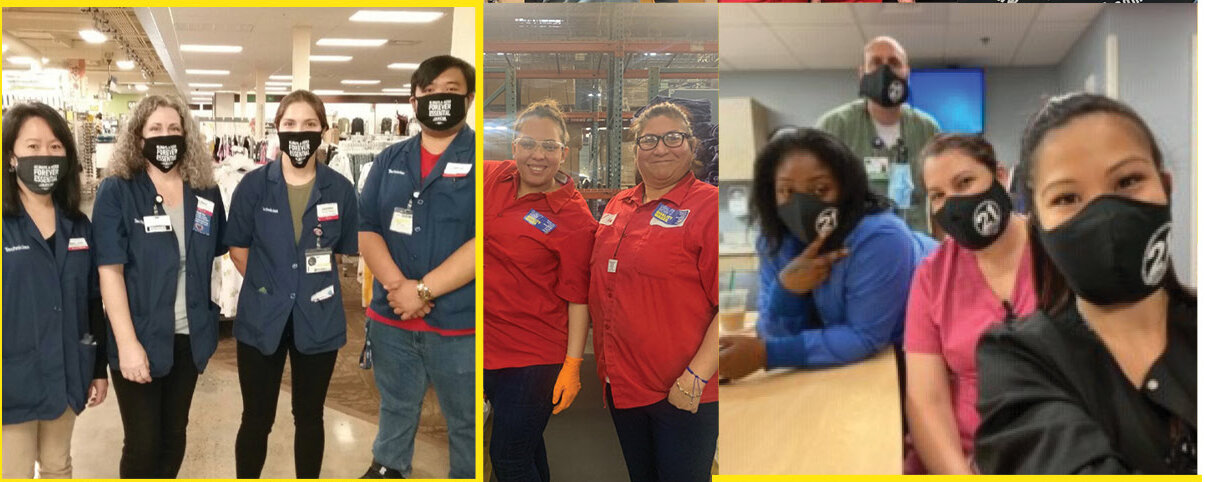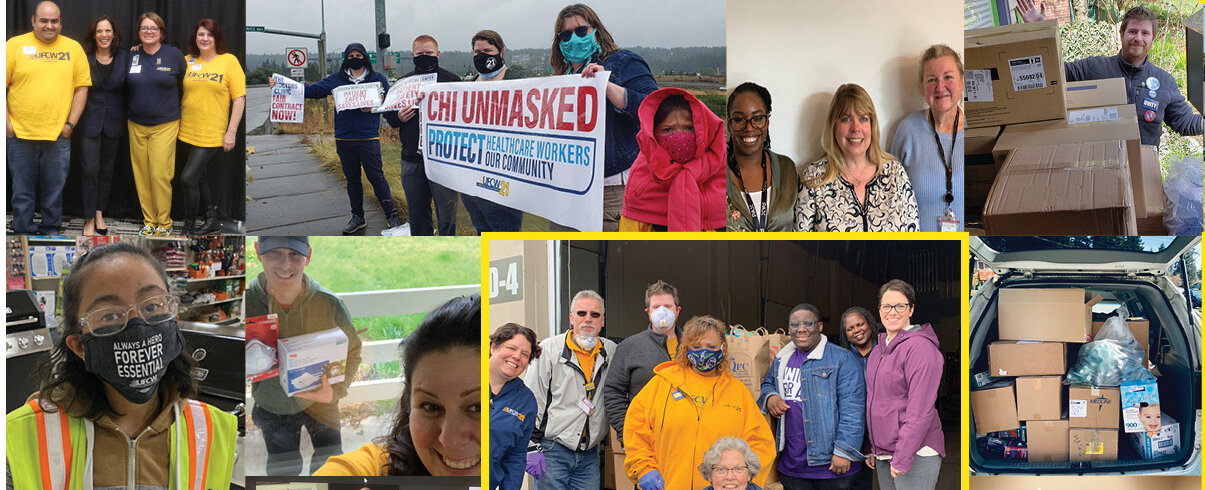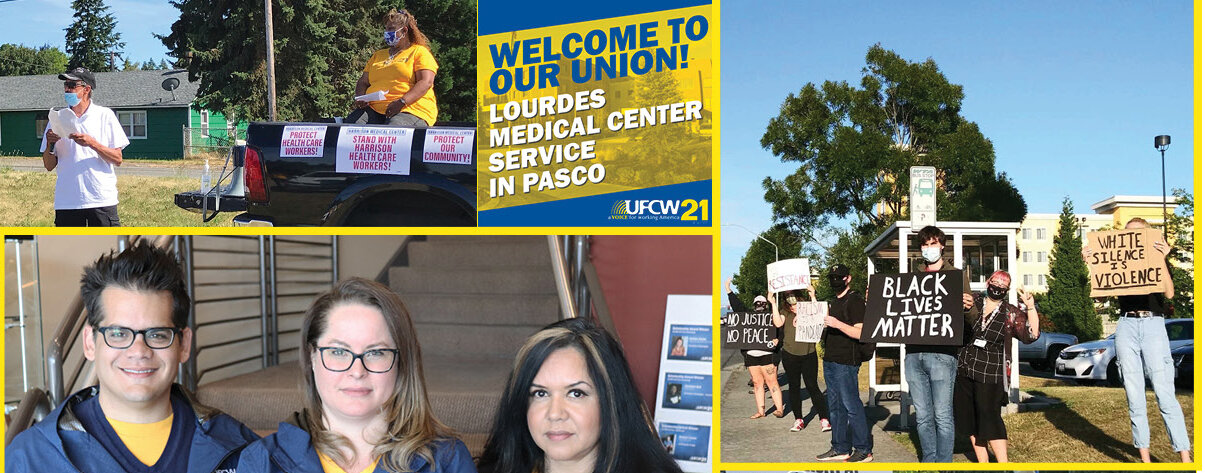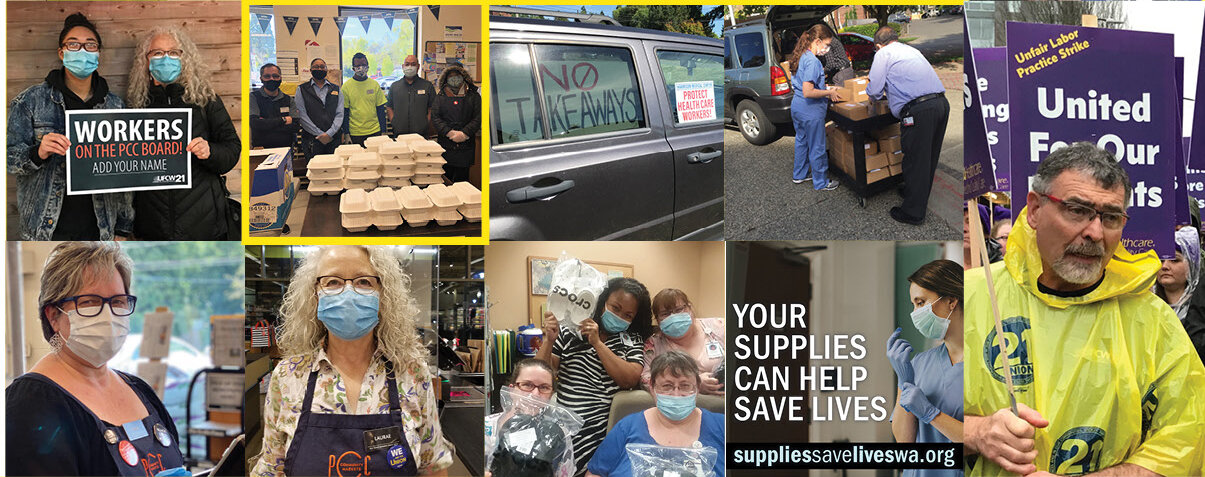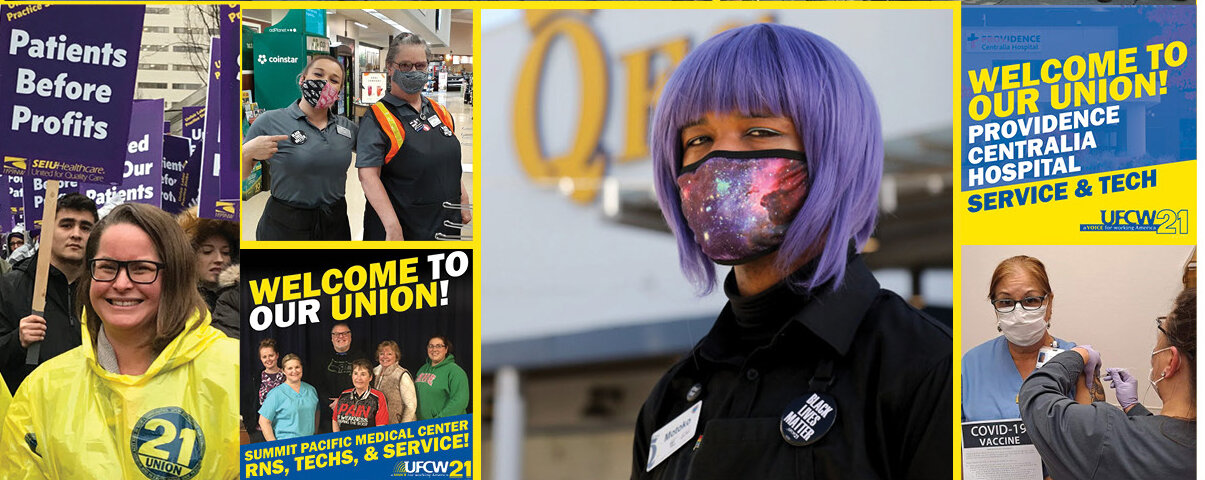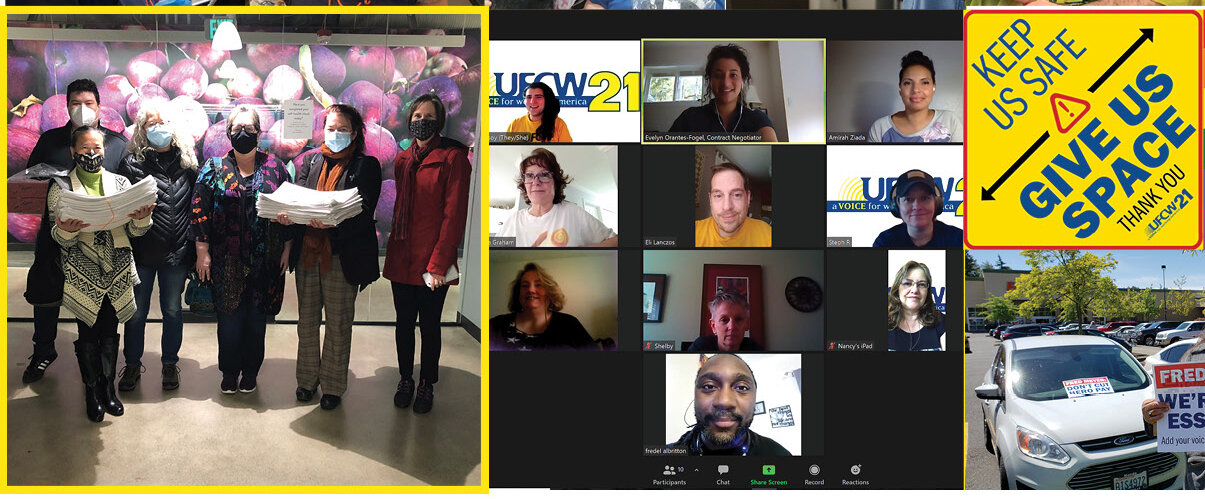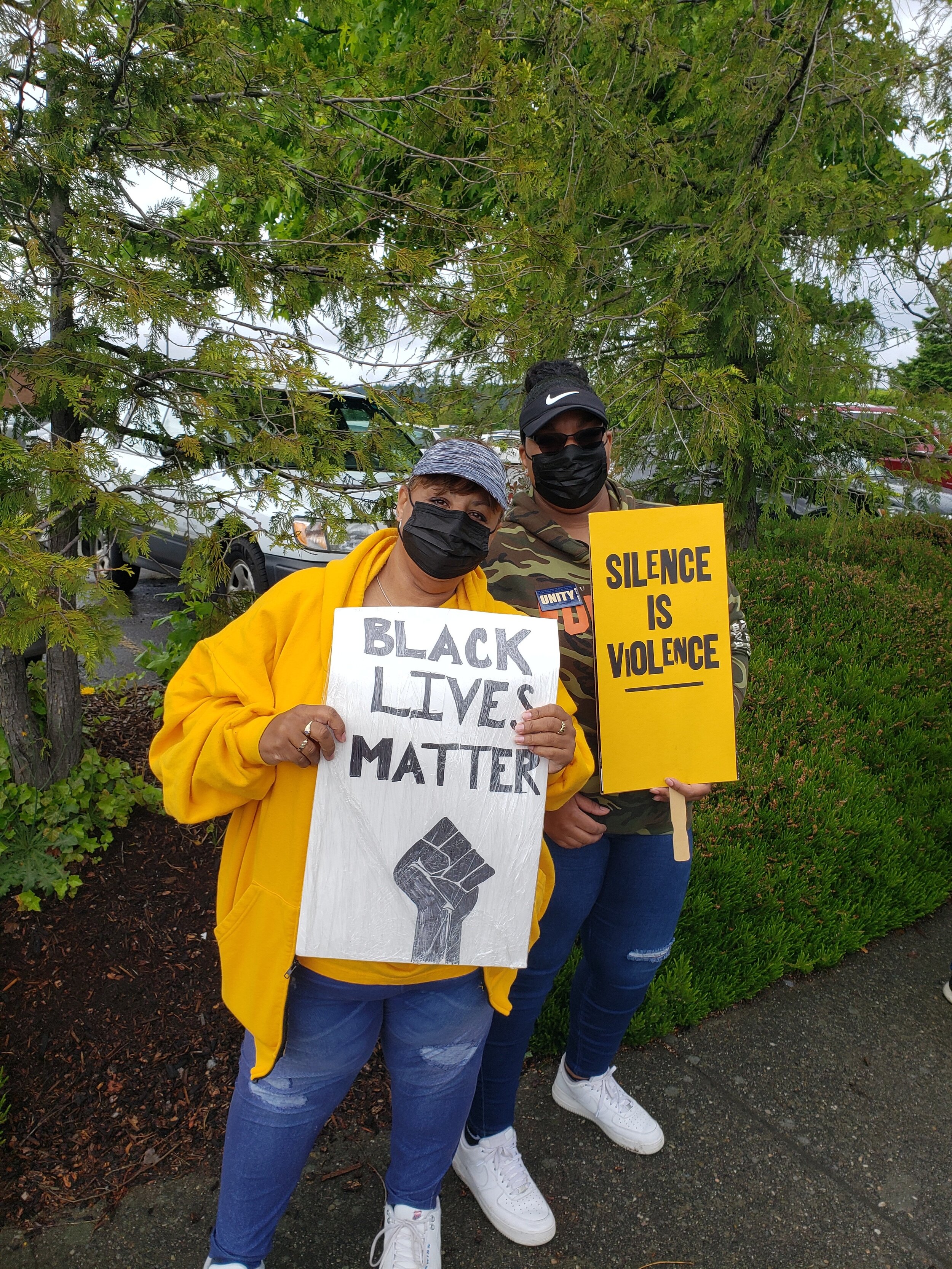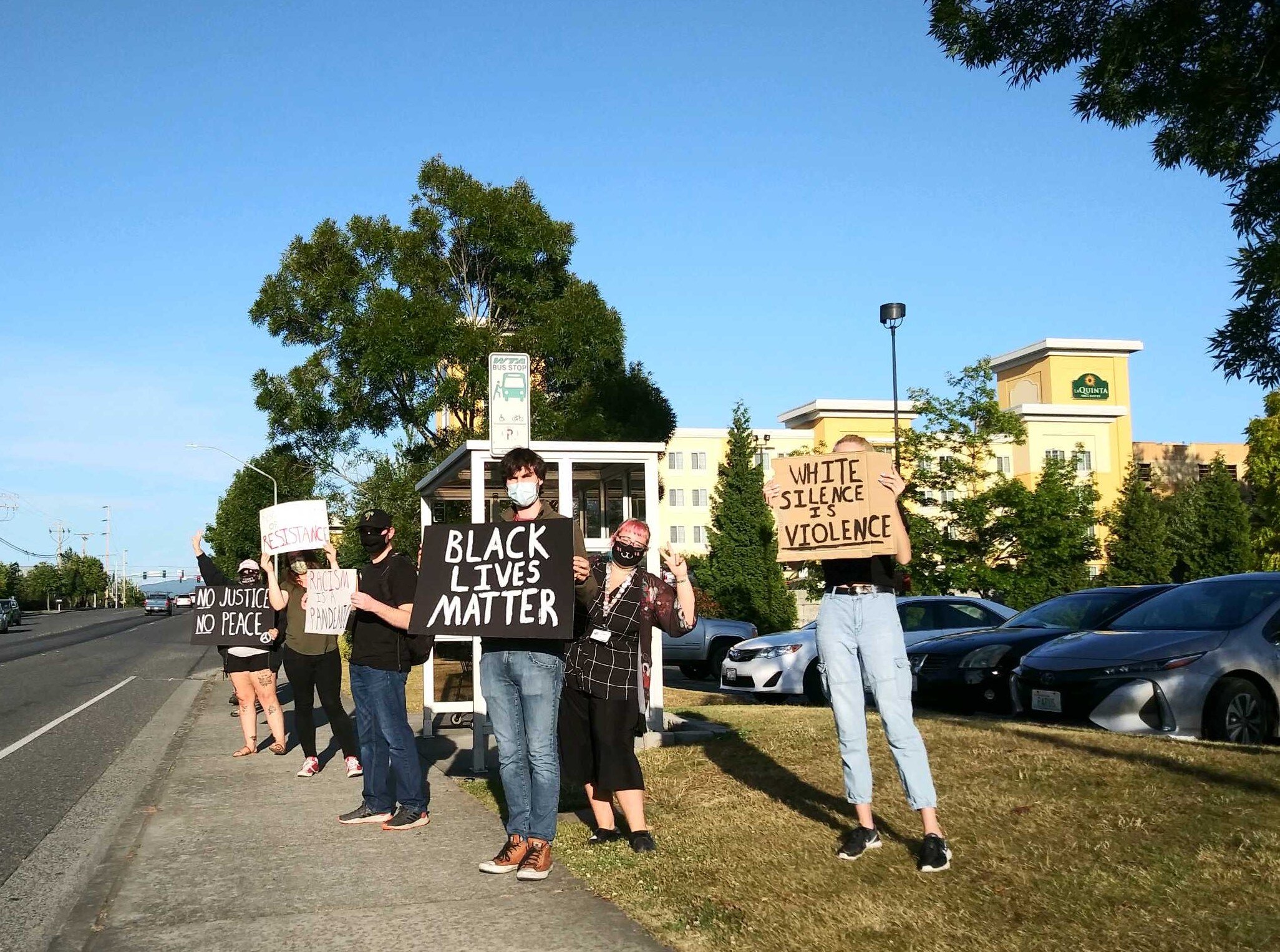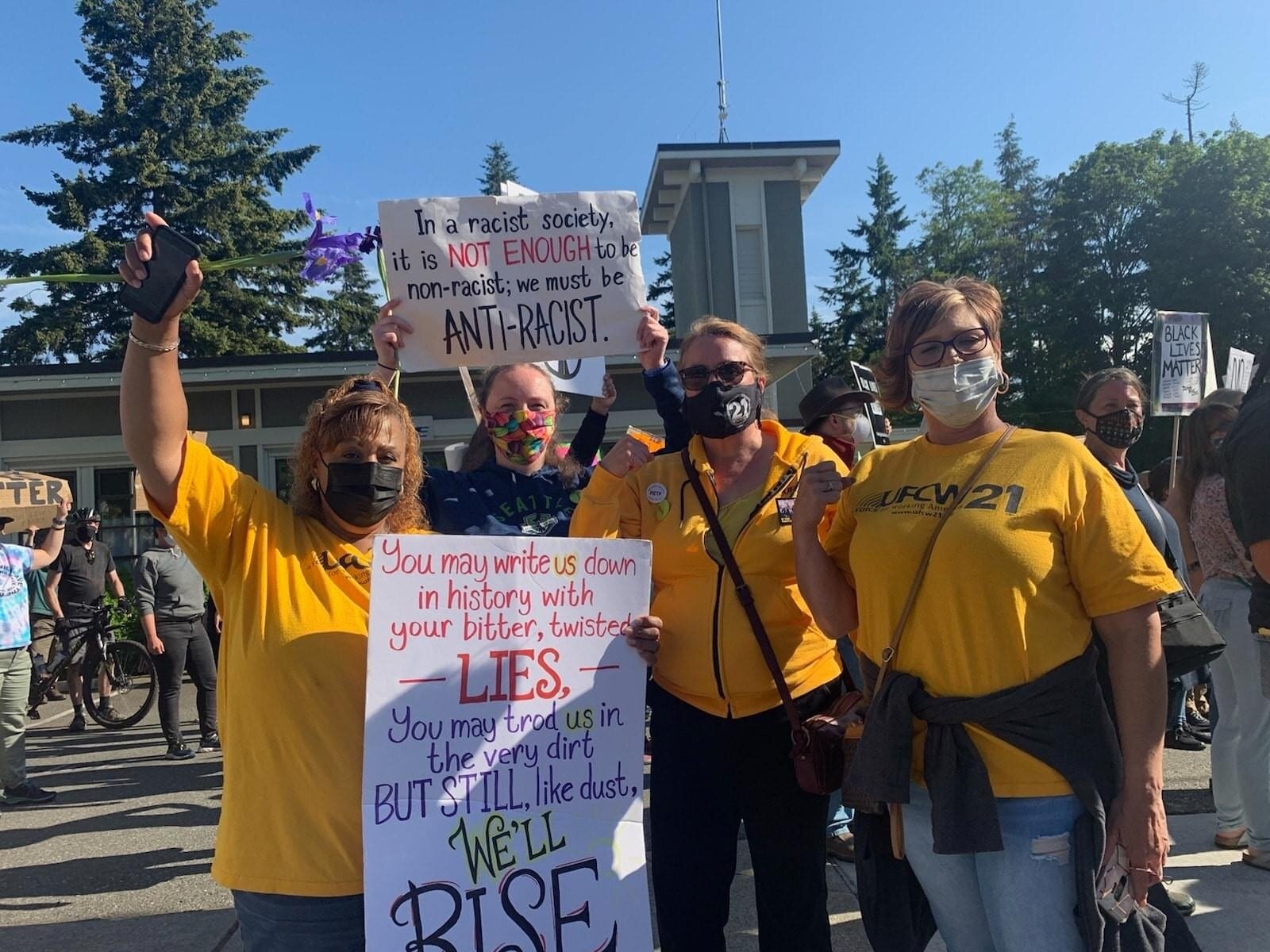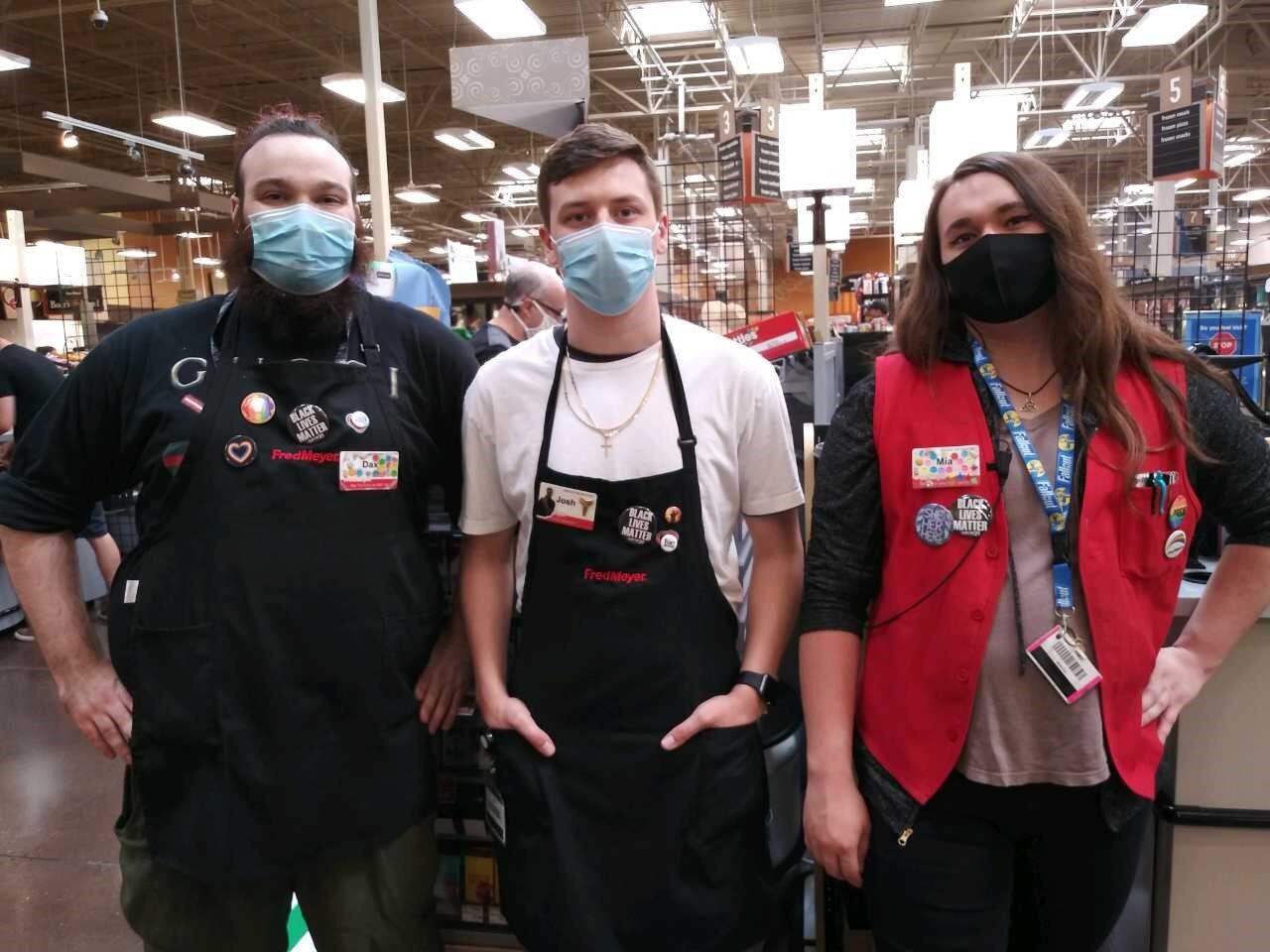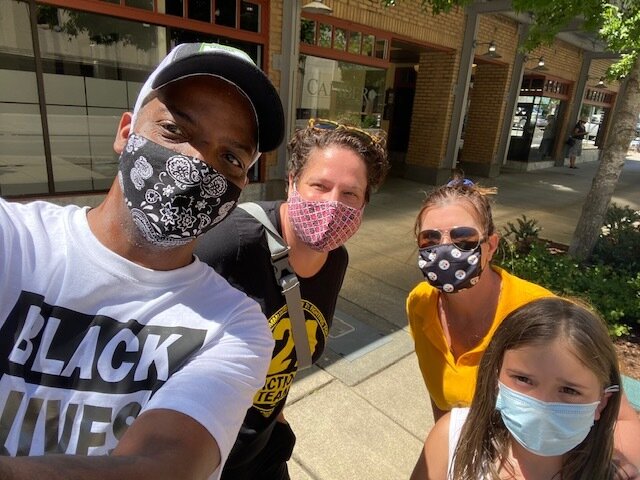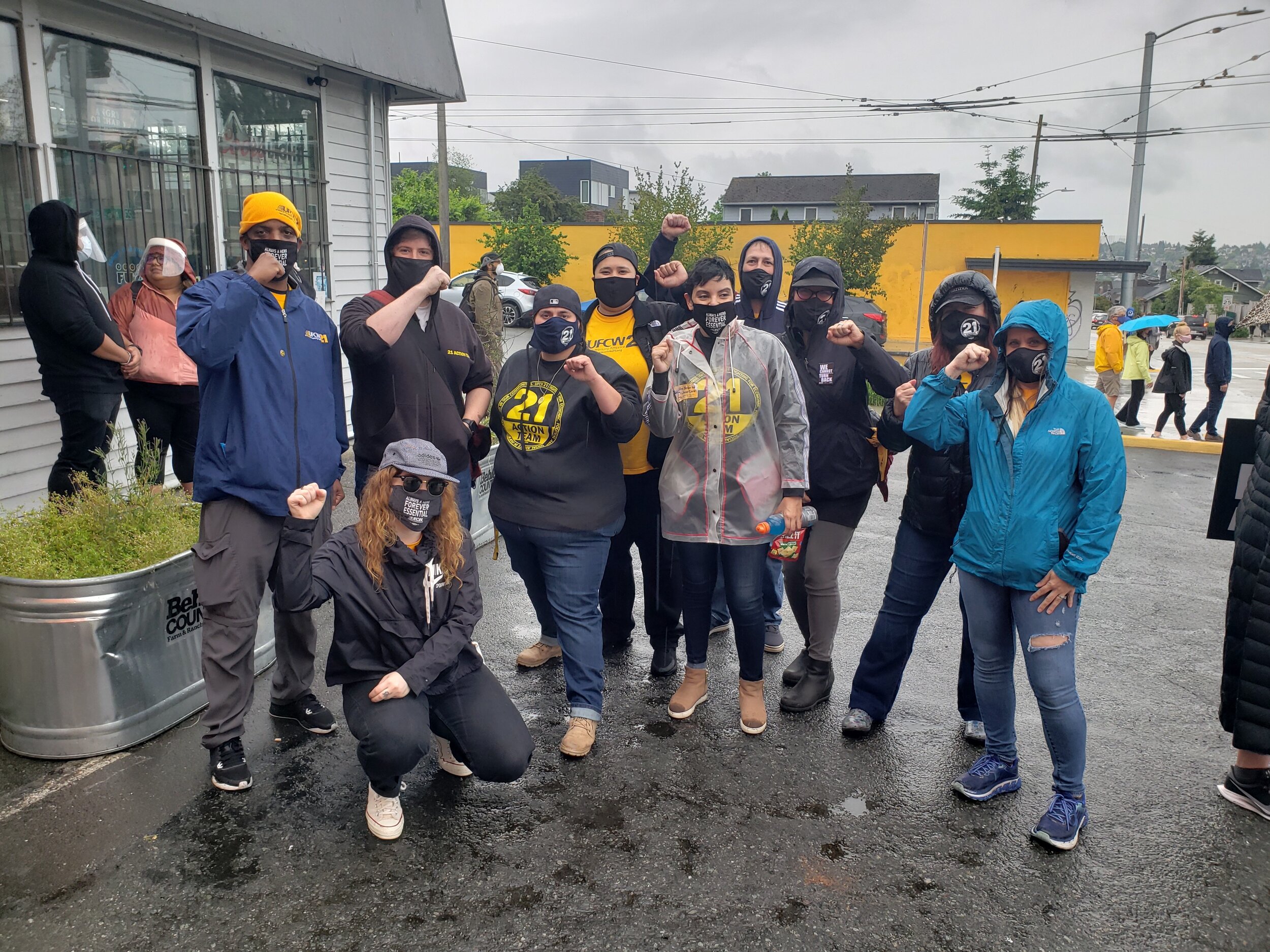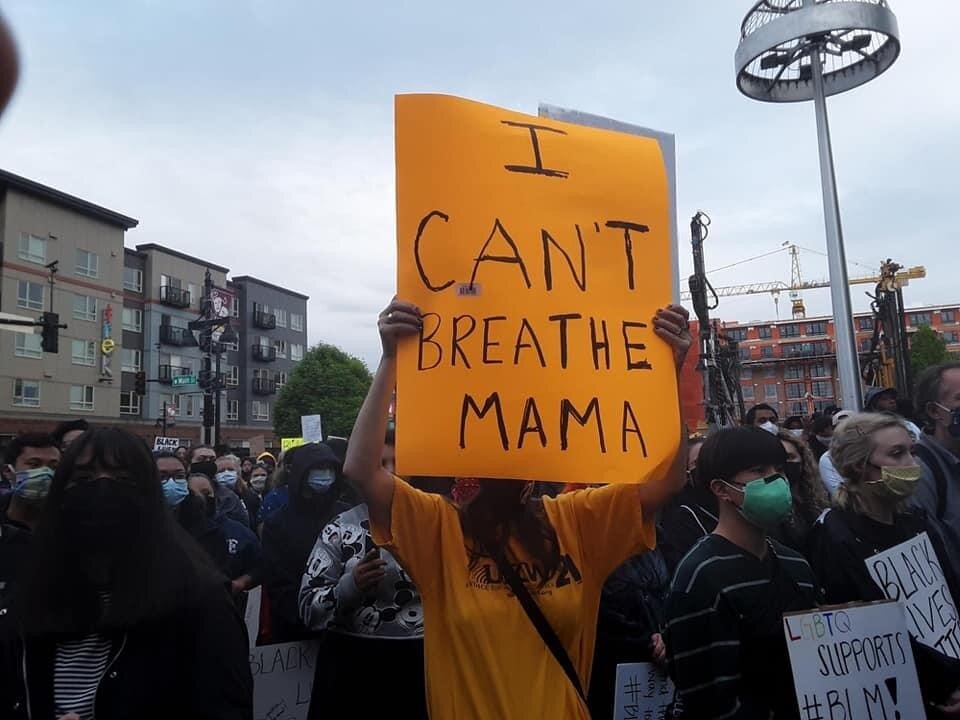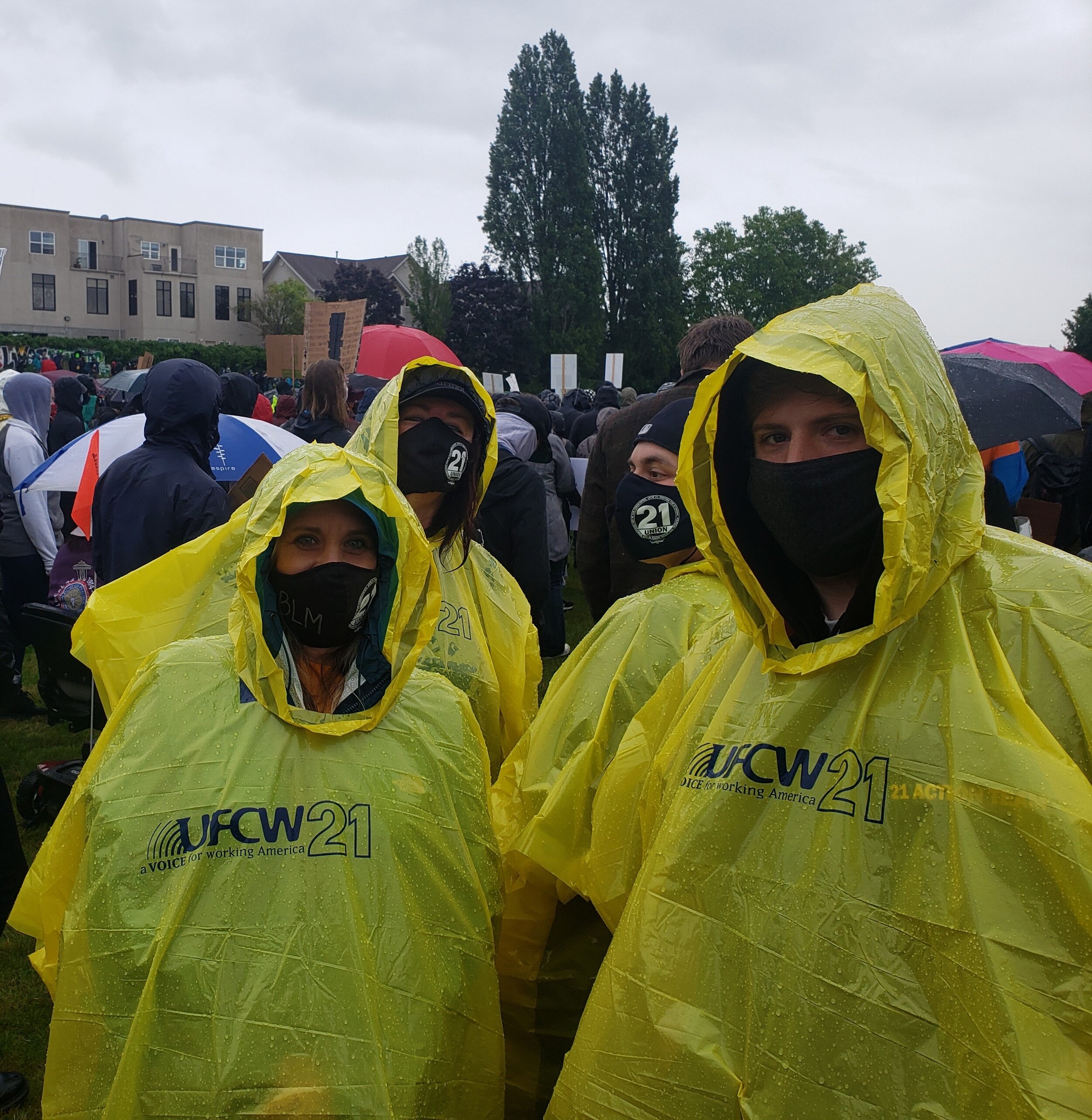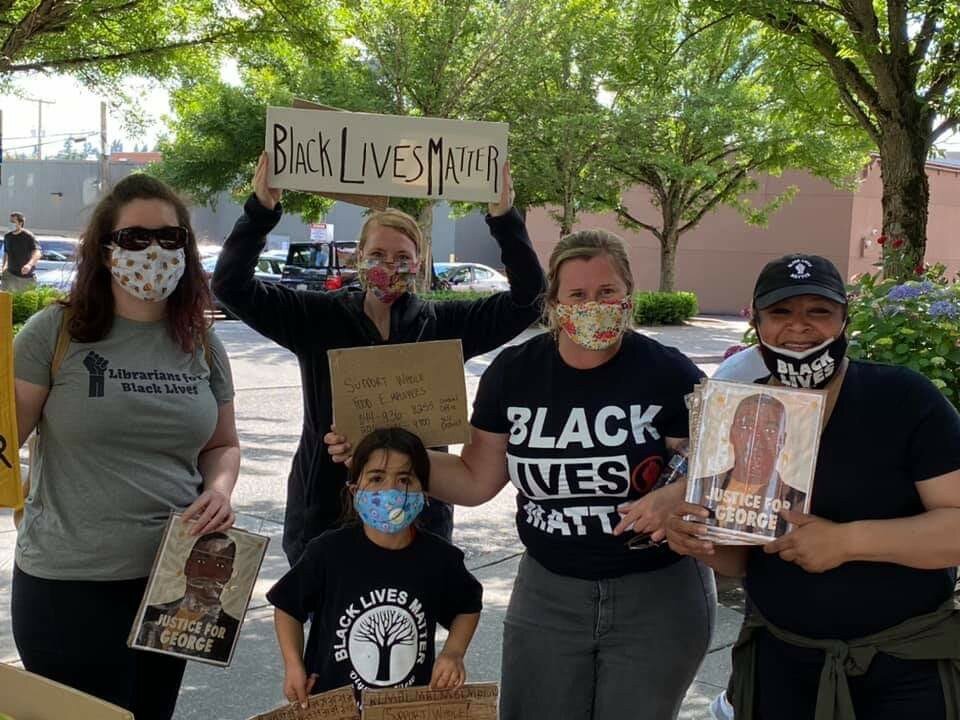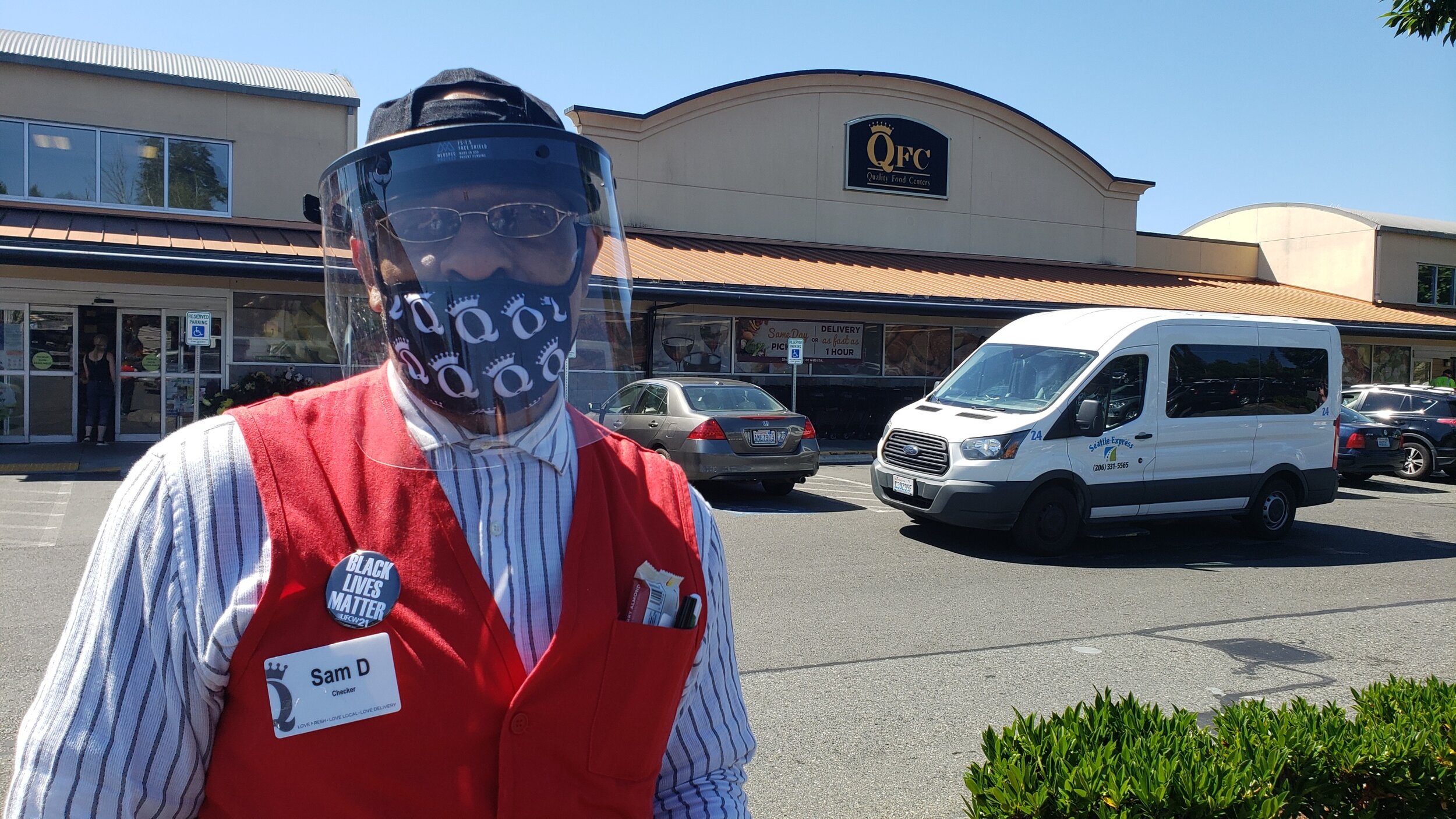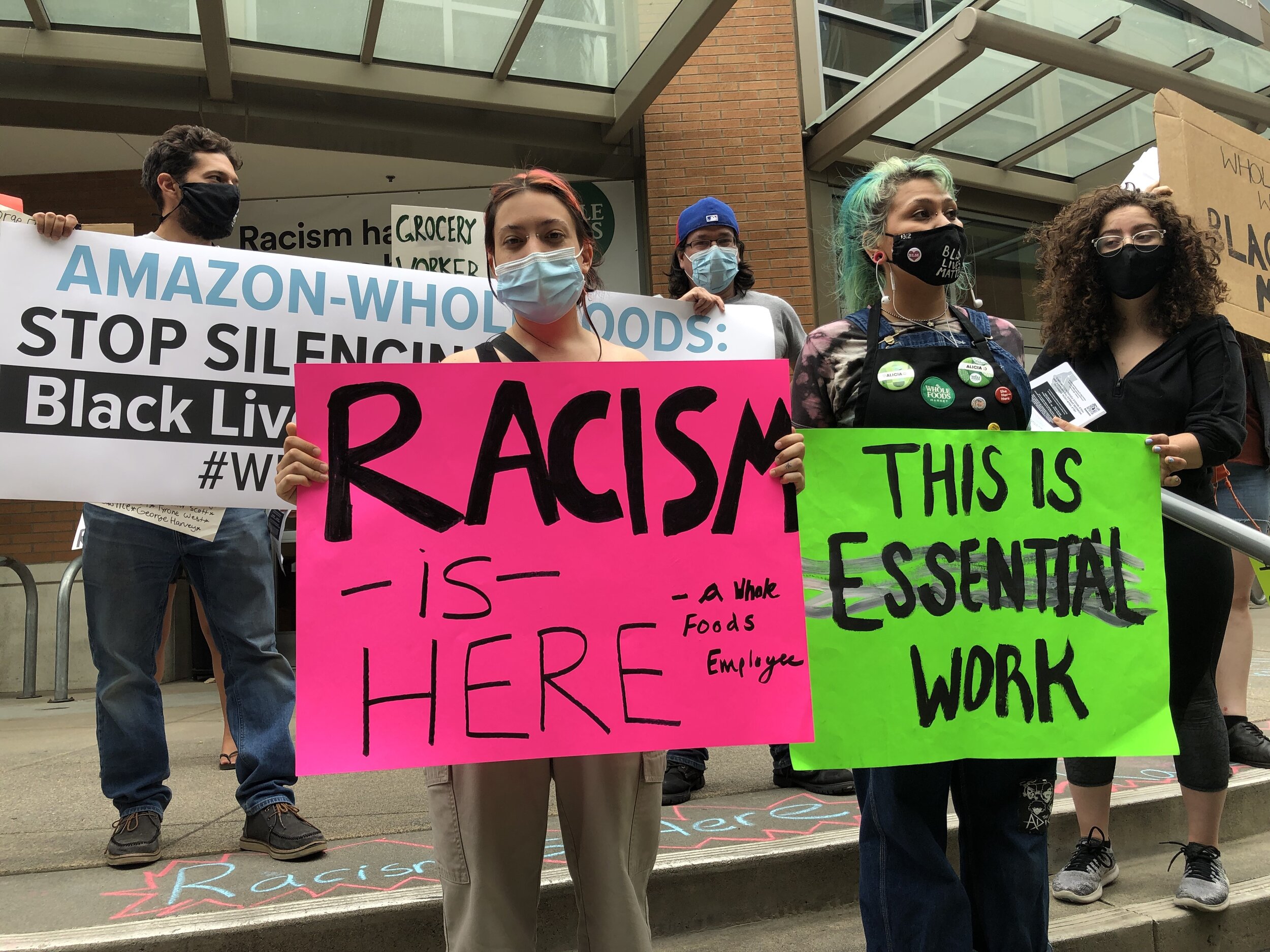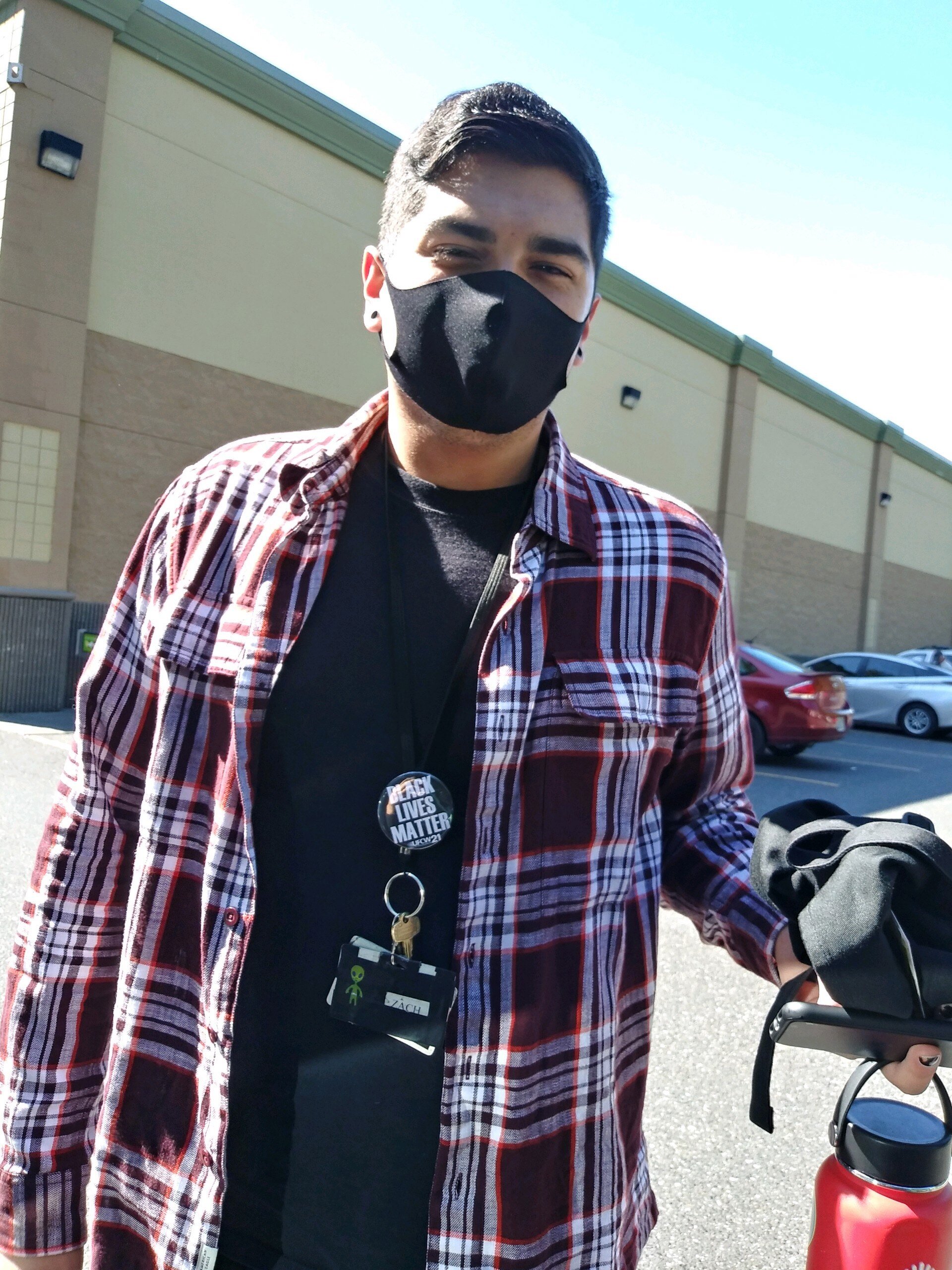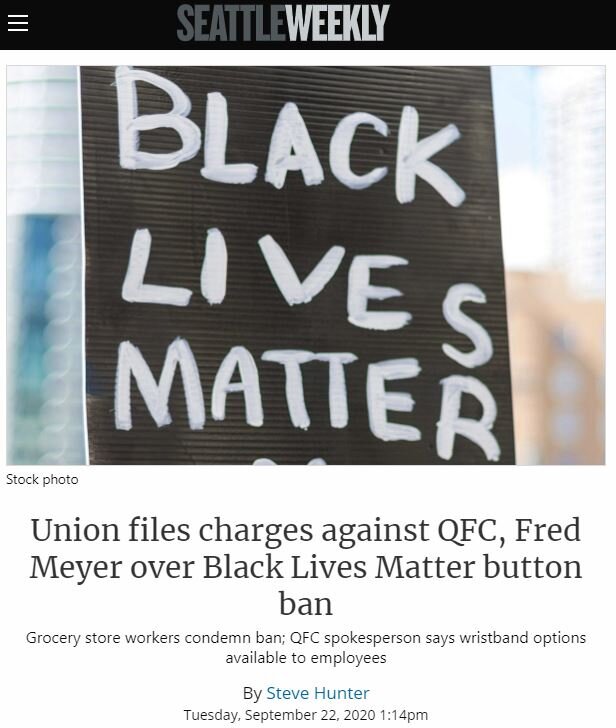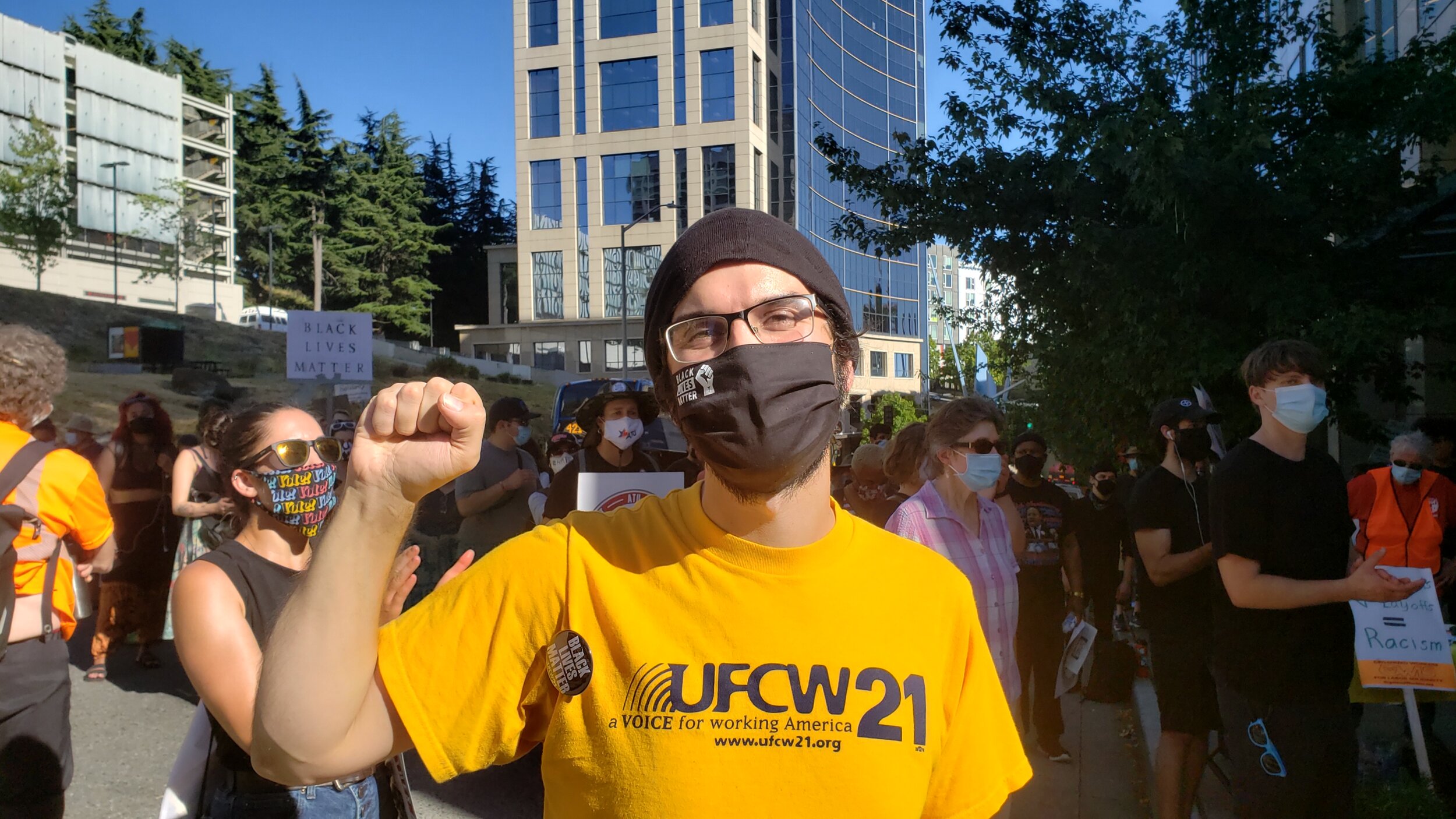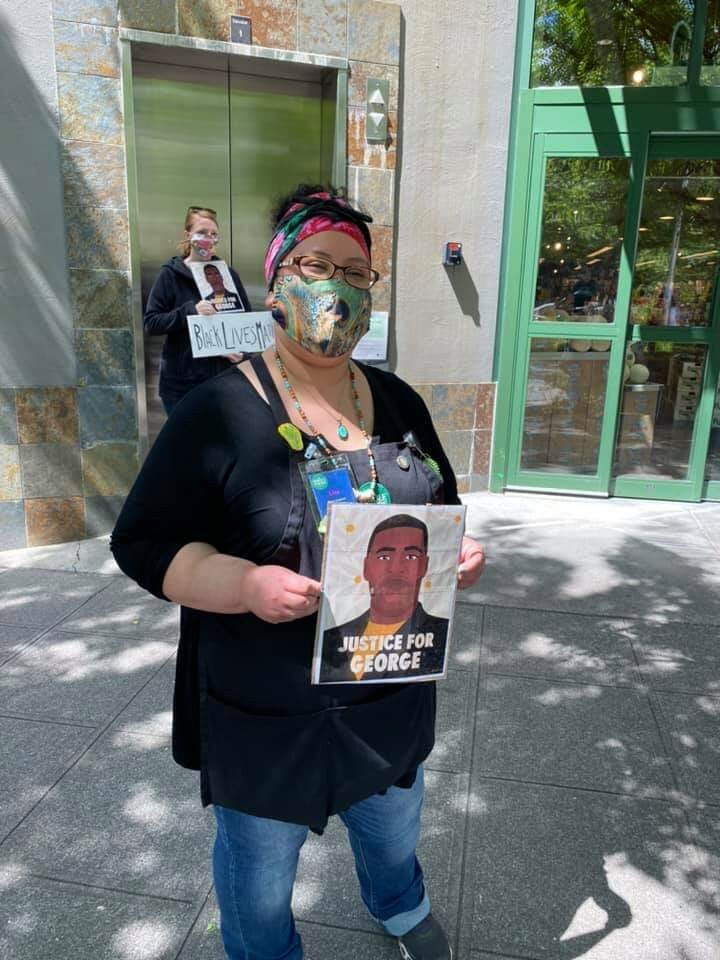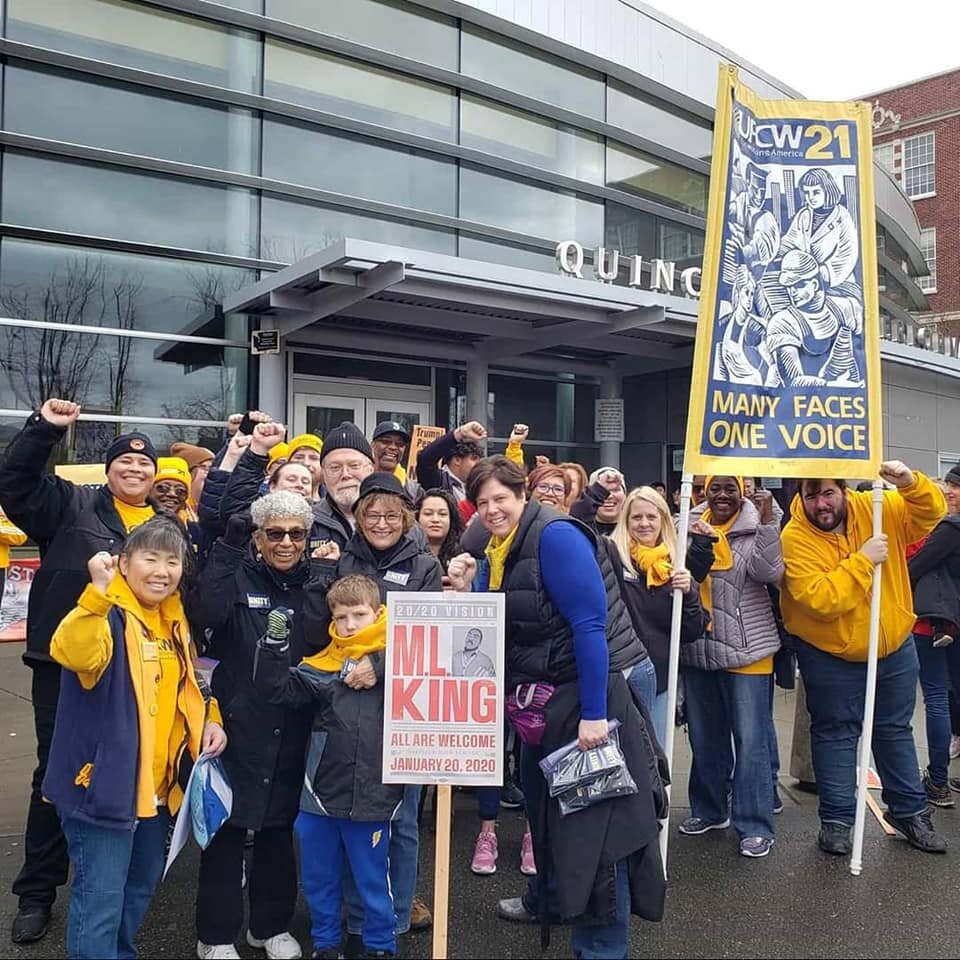Seattle approves $4 hazard pay for grocery store workers
/For media inquiries contact Joe Mizrahi, Secretary Treasurer UFCW 21
Help our Union fight for hazard pay in your city!
During the COVID pandemic, grocery store operators have reaped billions of dollars in windfall profits as a direct result of the shift to at-home meal preparation but have failed to compensate workers for the added risks and burdens of working on the frontline during the pandemic. The pandemic has steadily gotten worse while grocery workers have not received hazard pay in over 6 months.
Today, thanks to the hard work, testimony, and actions of UFCW 21 members, we won $4/hour Hazard Pay for grocery store workers throughout Seattle at grocery companies with 500 or more employees worldwide. Thanks to Seattle City Councilmember Teresa Mosqueda for her leadership in bringing forward this ordinance, the over 800 UFCW 21 members and allies who contacted Seattle City Council in support of this ordinance, as well as all the members and community allies who testified before the Seattle City Council in favor of Hazard Pay by sharing their heartfelt stories and fears. The effective date, pending signature from the Mayor, is February 3, 2021.
“I am grateful the council recognized the risks grocery store workers face during this extraordinary crisis. Thank you to our communities for hearing our stories and helping us get our voices out. Now, thanks to our hard work together, Seattle has won hazard pay for essential front line grocery store workers. This is a victory for Seattle workers, and I hope other cities follow Seattle's lead.” - Maggie Breshears, Greenwood Fred Meyer
Our union’s hard work in passing this ordinance builds on the hard work we have done to pass Initiative 1433 Statewide Sick Leave in 2016, to pass Washington State Paid Family and Medical Leave in 2017, to pass Uninterrupted Meal/Rest Breaks and close the mandatory overtime loophole for health care workers in 2019, and raising the minimum wage!
We believe every worker should have a voice on the job.
Hazard pay in the news:
Seattle City Council approves $4 per hour mandatory pay boost for grocery workers during COVID-19 pandemic (Seattle Times)
Seattle City Council passes bill requiring $4 an hour in hazard pay for grocery store workers (Seattle P-I)
Labor helps win hazard pay for Seattle grocery clerks, seeks wider adoption (Q13)
City Council Passes Mosqueda’s Hazard Pay for Grocery Store Workers Bill (Seattle City Council News Release)
Seattle approves extra ‘hazard pay’ for grocery workers (Associated Press)
Seattle City Council approves bringing $4/hour hazard pay back for grocery workers (KING 5)
Seattle City Council Passes Hazard Pay Bill for Local Grocery Store Workers (Eater Seattle)
Here’s what some UFCW 21 members have shared about hazard pay…
“Hazard pay is recognition that we are still risking our health and our lives to ensure people are able to eat. Throughout this whole pandemic, we’ve been a front line and I can see burnout happening in real time. I’ve come to work already crying, already shaking with anxiety over having to deal with unmasked customers and bus patrons on top of the taxing work. Everyone I talk to is at their wit’s end. If these pandemic conditions are to continue as the virus mutates, we deserve hazard pay. We’ve deserved it for a long time.” -Tori Nakamatsu-Figaroa, Uptown Metropolitan Market
“Hazard pay is important to me because fellow coworkers and I have to clean the protective barriers, surfaces, etc. What do they think we're cleaning!? The answer is we're cleaning COVID! It is outrageous that employees are not receiving hazard pay as of now. I have a fellow coworker who had a breakdown today because a customer was repetitively coughing on our video game cases, and we receive absolutely no compensation for cleaning up after customers. This has made me very angry.” -Björn Olson, Greenwood Fred Meyer
“I work in Clicklist [grocery pickup] and I am responsible for caring for my 95-year-old grandmother. I am so afraid that I will unknowingly pass Covid-19 on to her. I take all the responsible actions in making sure I use latex gloves and double-mask for extra measure. I am in small living quarters with her, and if I was to pass this on to her it would most likely be a death sentence for her. That is an incredibly large burden on my shoulders. My fellow co-worker, also in Clicklist, passed it on to her mother and sadly her mother passed away. I feel as though I’m looking at my future and the end to my grandmother's life. The risk I'm taking by working at Fred Meyer and serving the community is not being acknowledged by my employer. The burden is high and the pay is low.” -Cindy Wilbur, Fred Meyer
“Hazard pay is needed for grocery workers. We work around the public every day, risking our health to feed our families. I am a single mother of 2 small children that are at risk because I am at risk. I struggle to pay my babysitter, who basically raises my children because I am working 40+ hours just to barely survive, on top of risking not only my health but my children’s health. Kroger is making massive increases in profit while I barely scrape by.” -Hilary T.E. Williamson, QFC
“My husband and I both work at Metropolitan Market grocery. I am on leave of absence for health reasons and to help care for our child while they are distance learning. We are currently relying solely on my husband's income and a few assistance programs to get by. I've also lost my insurance due to sheltering. Hazard pay would be so helpful to offset my lack of income and help us keep on top of bills and rent. It would also help my husband and coworkers feel as though they're valued as essential workers and that their sacrifice at this time isn't going without notice.” -Holly Jansma, Metropolitan Market




